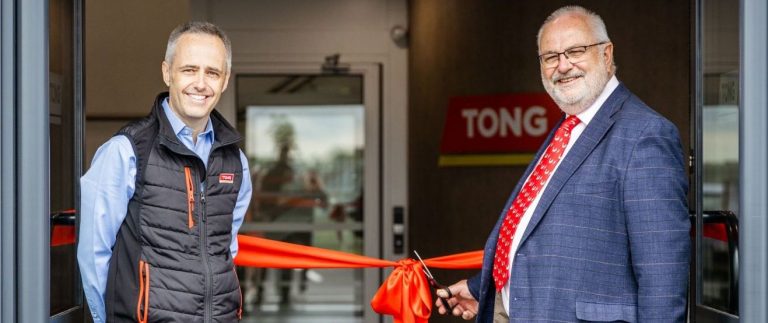First stage of ambitious Wakefield city centre plan underway
Ambitious plans to enhance the Cathedral Precinct area of Wakefield are getting underway.
The overall plan would see the creation of a premier space for entertainment and festivals, new facades for buildings on Bread Street and opportunities for food and drink businesses to be developed over the next three years, if full funding is agreed.
The first stage of the work has begun with shops and businesses with front or rear-facing façades along Bread Street being offered grants to create new façades that would complement the Wakefield Cathedral conservation area.
The next stages of the plans are awaiting final confirmation of funding from the Towns Fund. If monies are granted, the second phase would see vacant buildings at the end of Bread Street removed in 2024 to recreate the early 19th-century vista of the Cathedral.
The third phase will be hugely transformational with a new flexible multi-use entertainment area with seating, lighting and trees created to become the premier outdoor venue in the city for hosting open-air events, festivals and other family entertainment.
Cllr Darren Byford, cabinet member for regeneration, said: “These plans will completely change the look and feel of Wakefield City Centre, the new building frontages with look amazing and will improve the look of our historic buildings.
“Once Government confirms the funding, we will be able to make a start in transforming the area. Putting the Cathedral Square and surrounding streets at the heart of the City Centre will give us the space to bring entertainment and events to Wakefield, giving residents, visitors and businesses more reasons to be here in our city.”
Chair of Wakefield High Street Task Force, Cormac Hamilton, said: “It is very positive to see this imaginative project is getting underway. It will bring people together and will enhance our city centre and strengthen our offer as a great place for residents, businesses and visitors to experience and to enjoy.”
When completed in 2025, it would link in with the pedestrianised southern section of Wood Street and Cross Square with its wider pavements and new gardens becoming a place that prioritises the environment for people.
In delivering the Wakefield Masterplan, Wakefield Council aims to grow the local economy, make the city more attractive to new businesses, inviting to visitors and create more jobs for local people.
Sheffield-headquartered SIG snaps up construction products provider
SIG, the Sheffield-headquartered supplier of specialist insulation and sustainable building products, has acquired Miers Construction Products Limited (MCP) for an initial cash consideration of £28m.
A further contingent cash payment of up to £6.7m will be payable, subject to the performance of the business during the period ending on 31 December 2023, together with a deferred cash payment of £1.8m, payable in 24 months.
MCP was acquired from two founding shareholders and four members of MCP’s management team. The existing management team are remaining with the business and MCP will continue to trade under its existing brand.
Steve Francis, Chief Executive Officer of SIG, said: “We are delighted to announce the acquisition of MCP, which demonstrates delivery of SIG’s Group strategy to grow both organically and through carefully targeted value-enhancing acquisitions.
“MCP is a highly attractive specialist business with a strong brand, a great reputation for quality service, and technical sector specialism and expertise. These key elements have created a business that has the ability to grow sustainably ahead of the market.
“MCP illustrates the opportunities to accelerate through acquisition our path to 5% margins in the medium term. We welcome MCP’s knowledgeable and committed management team and employees to SIG and look forward to working with them.”
Established in 2010, MCP is a provider of specialist construction products to specialist sub-contractors, builders and main contractors.
For the year ended 30 September 2021, MCP reported revenue of £46.7m and operating profit of £4.4m. The business has continued to perform strongly in the current year, with (unaudited) revenue of £55.5 million and adjusted EBITDA of £5.1m for the 12 month period to 31 May 2022.
Rules change brings more micro-businesses into into grant eligibility fold
A government scheme that slashes the price of software, boosting productivity and growth of the UK’s small businesses, will benefit at least a million more firms from today.
With Customer Relationship Management software proven to boost firms’ productivity by 18% on average, the Help to Grow: Digital scheme offers businesses discounts worth up to £5,000 on approved software.
Previously, only businesses with more than five employees were eligible for the scheme, but from today, businesses with at least one employee are now eligible to benefit. This boosts the number of eligible businesses by 760,000 so that it now reaches up to 1.24 million.
Today it’s also announced that eCommerce software is available through the scheme to help businesses ramp up sales of products and services online. This includes helping them to manage their inventory, take payments and gather data and insights on customers’ needs. Businesses which adopt eCommerce software see on average a 7.5% increase in employee sales over 3 years.
This means businesses can now get a £5,000 discount on 30 software solutions from 14 leading technology suppliers for eCommerce, Digital Accounting and CRM software.
Additionally, the government has announced that Help to Grow: Digital will support one-to-one advice for SMEs on how best they can adopt digital technology. The government will be launching applications for advice platforms to partner with the scheme from today, and the advice service will go live later this year.
Business Minister Lord Callanan said: “Boosting productivity isn’t some abstract concept to be sniffed at – for individual SMEs it means bigger sales and breaking into new markets. It can add £100 billion to the British economy overall, creating jobs and opportunity across the country.
“Adopting the latest technology is proven to help businesses make the most of their potential, and by making more than one million firms eligible for the scheme, we’re helping to level up the UK economy and bolster the ability of our businesses to compete with the best worldwide.”
Martin McTague, National Chair of the Federation of Small Businesses said: “We are very pleased to have worked hard with BEIS to adopt our ask to expand the eligibility criteria of the Help to Grow: Digital scheme to support more small businesses getting the software they need.
“Our research shows the smallest firms are least likely to have adopted tech products because of the lack of resources although they would make the most productivity gains through adoption.
“It’s good that Ministers are listening. Together with the addition of e-Commerce software and one-to-one advice for SMEs on technology adoption, this will help small businesses enhance their operations and drive efficiency and growth.”
Engineering firm officials opens new premises in Spilsby
Tong Engineering has officially opened a brand new purpose-built manufacturing facility on the edge of Spilsby following a three-year, two-phase project.
An opening event marked a milestone for the vegetable equipment manufacturer and its new 90,000 square foot factory is now in full operation.
The project benefitted from a £500,000 grant from the LEP’s Greater Lincolnshire Growth Fund which offered match-funded grants of £150,000 to £500,000 to help SMEs to increase productivity and create new jobs.
MD Edward Tong said: “Since we began our first-phase building at the end of 2019, we have been working towards the day where all departments of the business can operate from one site.
“It was a pleasure to finally open our factory doors to showcase our new manufacturing facilities and to demonstrate the part that every employee and each department at Tong Engineering plays in manufacturing our wide range of custom-built handling equipment.
“During the build project we have been fortunate to achieve the sale of and smooth transition from our heritage site in the town, which we occupied for almost 90 years, and we are delighted that we now have the facilities and space to maximise our manufacturing capability.
“We’d like to thank everyone who took the time to visit our new factory during our opening event,” said Edward. “We will of course be very happy to welcome more visitors over the coming months as we continue to demonstrate the manufacturing processes behind Tong equipment.”
Chairman Charles Tong added: “I am very proud that we have been able to complete this landmark achievement during my time in the business. It has been our goal for many years to operate from a purpose-built site, and very importantly in our home town of Spilsby which thrives on the business that local employment brings.
“Our new facility now fully occupies the seven-acre site, and we are very pleased with the efficiencies that have been created with all aspects of the business now under one roof.”
Pat Doody, Chair of the Greater Lincolnshire LEP, said: “Tong Engineering is a successful and well established Lincolnshire business and we were pleased to be able to support their growth ambitions with this grant. As an agricultural business Tong operates in one of the key sectors which we aim to support through the Greater Lincolnshire Growth Fund.”
British Gas adds £2m to efforts to help with cost of living crisis
British Gas is to put an extra £2 million towards money advice centres funded by the British Gas Energy Trust, an independent charity solely funded by British Gas, to get more help to those struggling with living costs.
There are currently 23 advice centres funded by the British Gas Energy Trust over the UK, and this additional investment will add another 20, helping consumers with money advice, access to benefits, help with bill disputes, energy support and help applying for grants. They have managed debts for 24,000 people and have gained an additional £16 million in income for those seeking advice, as well as enabling the write-off of £7 million worth of debts. The extra £2 million in funding will increase this impact with an expected 35,000 people visiting the centres this year.
Independent research from the Centre of Sustainable Energy has shown that over three quarters (78%) of those supported through these organisations were able to plan ahead for household bills and other expenses. Over two thirds (68%) reported that support helped them to access additional income and 72% experienced an improvement in their financial situation since receiving support.
Says Helen Charlton, Chair of the British Gas Energy Trust: “The impacts of high energy bills and the cost-of-living crisis are harsh and far-reaching. So, as a charity we took the decision to release £1m in funding for further advice, help and support, funding projects in areas shown by our research and modelling to be most in need. We felt it was right to take this step at a time of severe, serious and likely ongoing crisis for the people we serve. And we are deeply grateful to Chris O’Shea and British Gas for £1m of matched funding, enabling us to double our efforts and impact at this critical time.”
Every year the British Gas Energy Trust delivers advice and support services for all consumers and last year provided £1.8 million of debt relief, emergency fuel vouchers, and grants to replace boilers, with a further £3.6 million of funding provided to charities who offer advice and money support.
Since the launch of the Trust in 2004, over £85 million has been invested in helping More than 500,000 people manage their energy costs.
This year British Gas Energy Support Fund was also created with a £6m investment in response to the cost-of-living crisis. Through the fund thousands of British Gas customers have been provided with grants between £250 and £750 to help pay towards their energy bills. Over a third of the recipients are on disability benefit and many are families – 30 per cent are single parents and a quarter have children under five years old.
Window on Gate Burton Energy Park consultation is about to close
Developer Low Carbon is urging people to take part in the second stage of consultation on its updated proposals to build a new solar and energy storage park on land near Gate Burton near Gainsborough in Lincolnshire, which is due to close on Friday, 5th August.
Low Carbon is specifically seeking feedback on its updated masterplan for the solar energy park, the route an electrical connection could take from the site into Cottam substation to export the electricity the scheme generates on to the national grid, as well as the measures proposed to reduce the potential impacts associated with the project.
Views and suggestions for community benefits and local initiatives Low Carbon could support to directly benefit those communities closest to the proposed energy park are also being invited.
Mike Rutgers, Development Director at Low Carbon, said: “It’s really important to us that as many people as possible share their thoughts on our refined proposals for Gate Burton Energy Park. Low Carbon is committed to having a lasting and positive impact on climate change and we want to ensure that communities living and working in the area have a chance to inform and influence the proposals we’re developing.
“We’ve already received a good amount of feedback, but we’d really like to hear from anyone who hasn’t yet shared their views with us. We’re conscious there are other large-scale solar schemes being proposed in the area which are currently undertaking public consultation, so we’d really appreciate people taking the time to articulate their views to us directly on Gate Burton Energy Park specifically.”
Low Carbon will consider all the feedback submitted to this consultation together with the findings from ongoing technical and environmental studies to help finalise the details for the project before submitting an application to the Planning Inspectorate later this year.
Further information: www.gateburtonenergypark.co.uk
Powerhouse fund takes investment in the north to 12,000 businesses
In its fifth anniversary year the £500m Northern Powerhouse Investment Fund is celebrating having invested in more than 1,000 businesses across the North of England.
With an investment total of £334m and an additional £504m attracted in private sector co-investment, NPIF has delivered a total of over £800m of funding to Northern small businesses in the last five years.
NPIF was launched in 2017 by the British Business Bank using funding from the European Regional Development Fund, HM Government and the European Investment Bank. NPIF forms a key part of the Bank’s activities to back the Government’s Levelling Up agenda by helping to reduce regional funding imbalances and create economic prosperity in the North of England.
Throughout the past five years, NPIF has worked closely with the North’s 10 Local Enterprise Partnerships (LEPs), Combined Authorities and Growth Hubs. NPIF and its Fund Managers have worked with these organisations to support small and medium businesses across the North West, Yorkshire & Humber and Tees Valley Regions.
At the Spending Review in October 2021, the Chancellor pledged a further £660m for the next generation of NPIF, which is set to cover every corner of the North, including the North East LEP area.
NPIF offers a range of funding options to suit all types of businesses including Microfinance between £25,000 and £100,000, Debt Finance between £100,000 and £750,000, and Equity Finance up to £2m.
Amongst investment recipients is Tribosonics, a company based in Sheffield that creates smart sensors to improve efficiency. The company raised £1.5 million in investments led by NPIF – Mercia Equity Finance, offering the company further growth capital to increase capacity and enhance current facilities.
Catherine Lewis La Torre, acting CEO of British Business Bank, said: “Supporting over 1,000 businesses across the North of England is a significant milestone for NPIF. This investment has provided these businesses with the capital they needed to invest in R&D and to bring new products and services to market. This has resulted in increased revenues and has supported local communities through the creation of high quality jobs. As NPIF celebrates its first five years, and as a second NPIF fund has been announced, we recognise that there is still enormous potential for further productive investment in a broad range of businesses with ambitious growth plans across the North of England.”
Neil MacDonald, Vice Chair at South Yorkshire Mayoral Combined Authority LEP and NPIF Strategic Oversight Board Member, said: “More than 100 South Yorkshire businesses have successfully secured funding from the Northern Powerhouse Investment Fund over the past five years. The impact has not only been in business growth and productivity, but it has also allowed companies to create new jobs, invest in new technology, plants & equipment, expand their products or services into new international markets and to train and develop more staff. We look forward to supporting even more local businesses to access the NPIF fund in the future.”
The Northern Powerhouse Investment Fund project is supported financially by the European Union using funding from the European Regional Development Fund (ERDF) as part of the European Structural and Investment Funds Growth Programme 2014-2020 and the European Investment Bank.
University of Sheffield and Rolls-Royce launch project to enable supply chain resilience and security
A new project launched in collaboration between the University of Sheffield and Rolls-Royce aims to help industry and government track and compare facility-level supply chain resilience.
Project FPSCRS (Future Proof Supply Chain Resilience and Security), funded and supported by the Economic and Social Research Council (ESRC) and Rolls-Royce, will establish a resilience index scorecard system, hosted via a secure online tool, to provide a quantitative scale of resilience measurement and capture qualitative insights.
The tool, co-developed by Rolls-Royce and researchers from the Management School at the University’s Faculty of Social Science, enables high value manufacturing industries such as civil aerospace, automotive, and rail to benchmark their supply chain resilience, and manage and respond to risk and security issues.
Created with input from industry leaders, the tool will allow the government and advanced manufacturing industry to measure and reduce uncertainty and risk, minimise vulnerability and threat, and improve supply chain security and resilience.
A policy brief will be generated in consultation with key partners and stakeholders in the supply chain and within government departments for green economy recovery post-COVID-19, focusing on supply chain resilience and security.
The brief aims to bring transformational industry and policy impact economically, environmentally and socially for UK businesses and global supply chains.
Professor Lenny Koh, director of AREC and co-head of Energy Institute, and academic lead of FPSCRS, said: “Through this co-creation with Rolls-Royce, Project FPSCRS advances the understanding of supply chain resilience and security in the advanced manufacturing industry. Novel measures and models will be developed, along with the tool and policy brief, using multiple methodologies. This research will help solve the pressing challenges of disruptions via improved risk mitigation and business continuity.”
Peter Ralph, head of Security and Resilience, Rolls-Royce, and the industry lead of FPSCRS, said: “This research forms our underpinning basis and decision making in shaping our resilience and security strategy and framework. The involvement of all 4 businesses within Rolls-Royce validates the agility and replicability towards a resilience standard which has national and global relevance. The impact of this future-proofing of our supply chain resilience and security is global and significant at industry and government levels.”
Paul O’Rourke, group security director, Rolls-Royce, said: “Rolls-Royce’s capability to safeguard customers’ delivery, and lead and future proof our organisation and supply chain against disruptions ranging from security of critical materials supply to the flexibility of our manufacturing and test facilities, is a top priority from management.
“The dynamic geopolitical, economic and environmental externalities in the industry such as the Russia-Ukraine war, COVID-19 and climate change affect resource resiliency. This research plays a key role in changing mindset and informing policy on putting resilience and security-critical factors in decision making in industry and government.”
New tenants arrive and more expand at Marshall’s Mill
Strong demand continues for office space across the Marshall’s Mill and Round Foundry estate in Leeds South Bank as two businesses renew their leases, another expands, and two new tenants arrive.
The newest arrivals to the historic area, taking up 3,035 sq ft on the 4th floor of Marshall’s Mill, are digital marketing agency Flaunt Digital and Cumulus Management, who will be occupying 1,722 sq ft of Marshall’s Court.
International IT and communications agency Whitespider, has added the 5th Floor studio to their current lease, an additional 294 sq ft. Whitespider first took space at Marshall’s Mill in 2021 occupying 1,100 sq ft on the 4th floor.
Local institution Out of the Woods renews its 472 sq ft lease by signing a new 10-year contract. A long-standing tenant in the Urban Village, the café first opened on Water Lane in December 2006 before doubling in size to include a second location at Granary Wharf in November 2010. Global media agency MediaCom have also extended their lease for the next decade, retaining their 5,582 sq ft office on the 2nd floor of Marshall’s Mill.
Paul Taylor, Managing Director at Creative Space Management, who oversaw some of the lettings said: “The surge in new tenants, expansions and 10-year leases shows that businesses are growing and have confidence in this area, with only a limited number of units now remaining. Leeds South Bank is clearly a leading location for creative, independent, technology-based companies and it’s great to see the individual businesses succeed within this one community.”
Meanwhile, Elizabeth Ridler, partner at Knight Frank and joint letting agent, said: “It’s incredibly positive that we have this continued demand for space in the area, especially as we look towards the comprehensive refurbishment of the former Round Foundry Media Centre which will provide suites from 3,500-28,000 sq ft.”
Out of the Woods owner Ross Stringer was equally positive about the area: “Marshall’s Mill and the Round Foundry area has been the perfect location for us. We love the fantastic regeneration here the people and most importantly the community vibe between the businesses – it has a cool ‘village feel’. After 16 years in the area, we are continually looking forward to seeing the new surrounding developments come to life and breathing even more energy into Holbeck.”
Lee Fuller from Flaunt Digital agrees saying: “Marshall’s Mill is an iconic building; we haven’t been here long but are already so happy. It was the perfect choice to accommodate our growing staff numbers and because it is so close to Leeds Train Station it makes commuting easy for both our staff and clients.”
Hush Acoustics invests £500,000 in move to new Yorkshire factory
Acoustic insulation manufacturer Hush Acoustics has completed its move to a new site in Sheffield which provides significantly more capacity for production and stockholding of its soundproofing product range.
Having outgrown its former site in Liverpool, Hush Acoustics was keen to capitalise on its potential for growth and support the high demand for soundproofing solutions from the UK building industry. With no suitable sites available in Merseyside, the company looked further afield for its new home and settled on an ideal building in Sheffield, one of Yorkshire’s manufacturing heartlands, which will be ideally suited to facilitating its long term plans.
Hush Acoustics’ new HQ and factory at Tinsley Industrial Estate covers more than 15,000 sq ft, an increase of 46% on its previous site, providing employment for 15 people. The additional space is already giving the company extra storage for raw materials and finished product stockholding, along with ability to increase production volumes – all of which ensures it can keep lead times to a minimum and respond quickly to customer demands.
In addition to Hush Acoustics’ wide range of timber soundproofing products, the team at the new Yorkshire factory will manufacture all its rubber based insulation materials, including its numerous acoustic membranes for concrete floors.
Robert Crampton, MD of Hush Acoustics, said: “Our move to new premises marks the start of an exciting new era of growth for Hush and I’m delighted with the facilities and extra capacity we now have available to us.
“Acoustic comfort and soundproofing in our homes, offices, public buildings, hotels, schools and numerous other types of buildings is becoming an increasingly important design and specification consideration for both new build and conversion projects, and we are committed to ensuring the construction industry has access to the best performing products and systems.”












